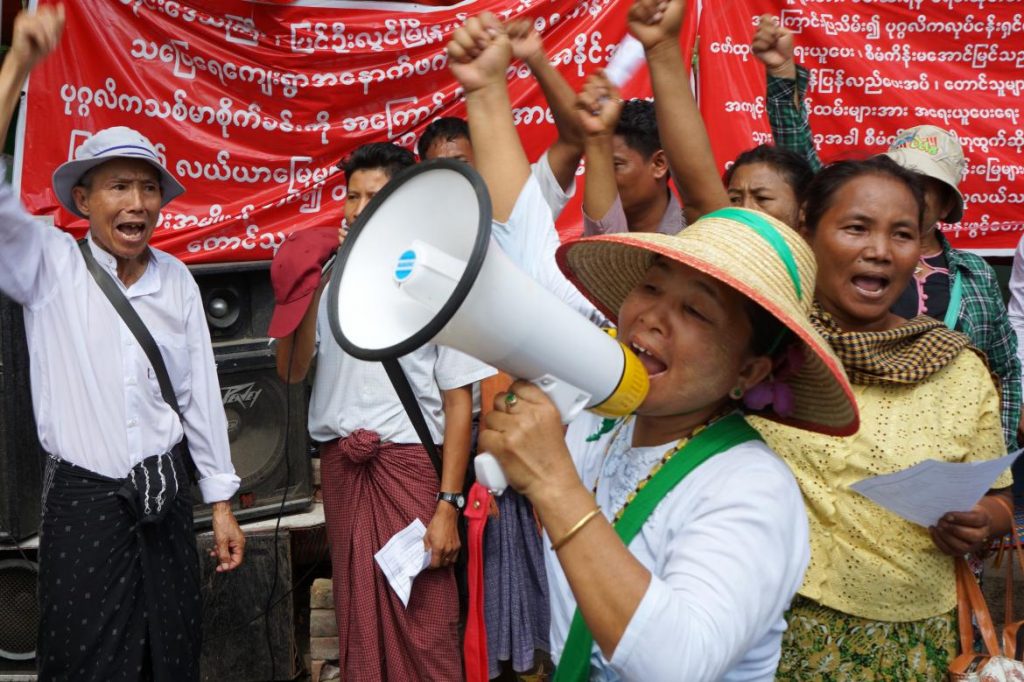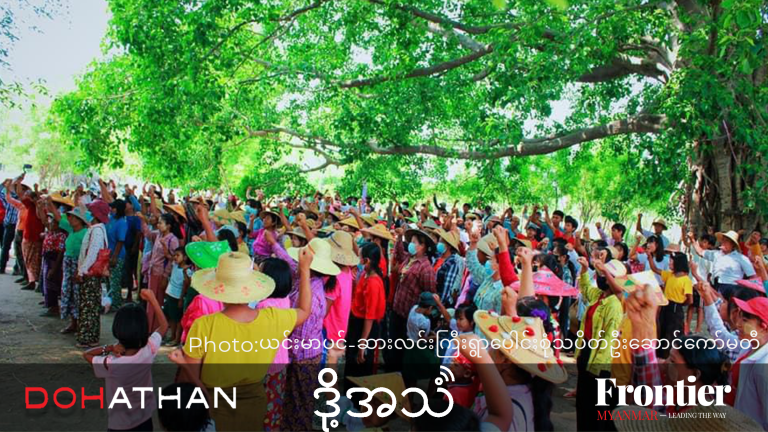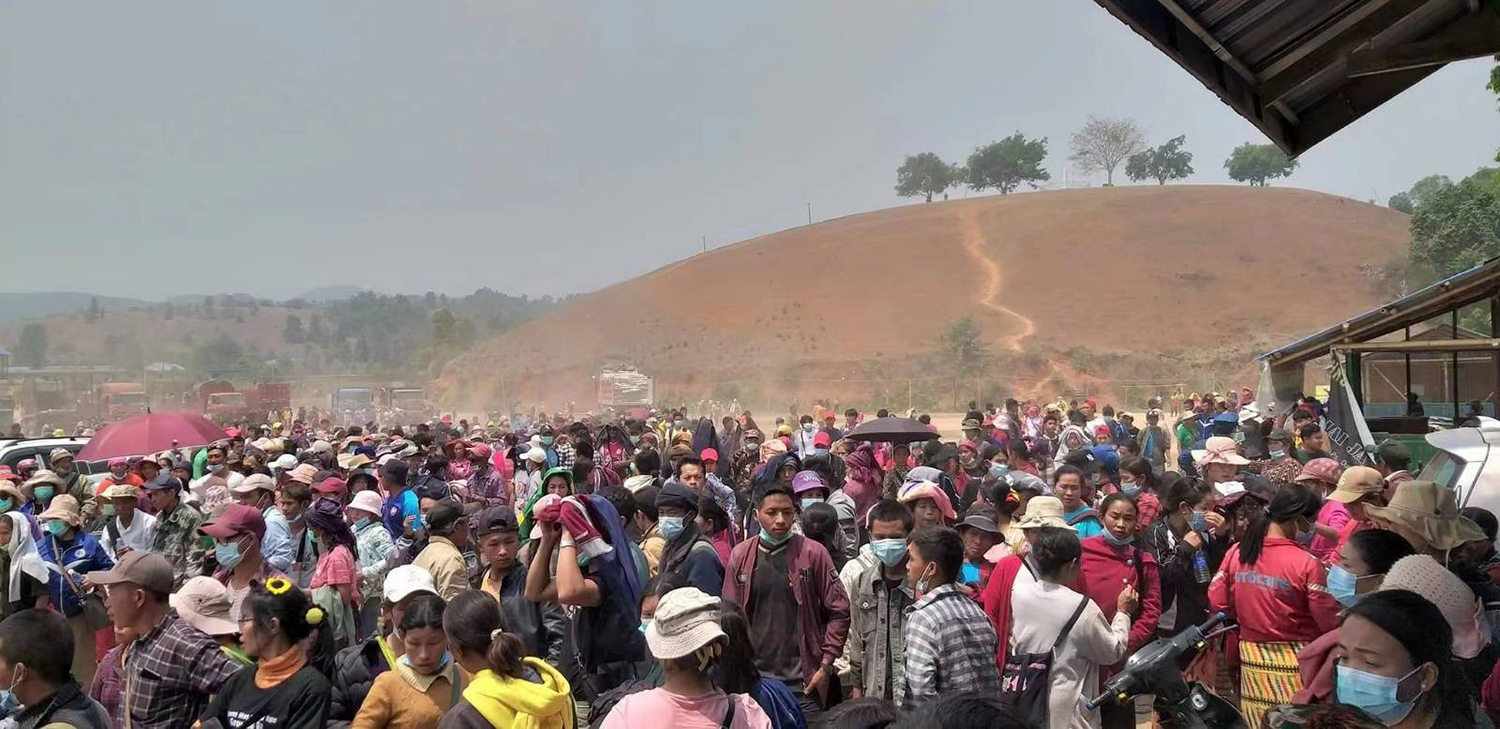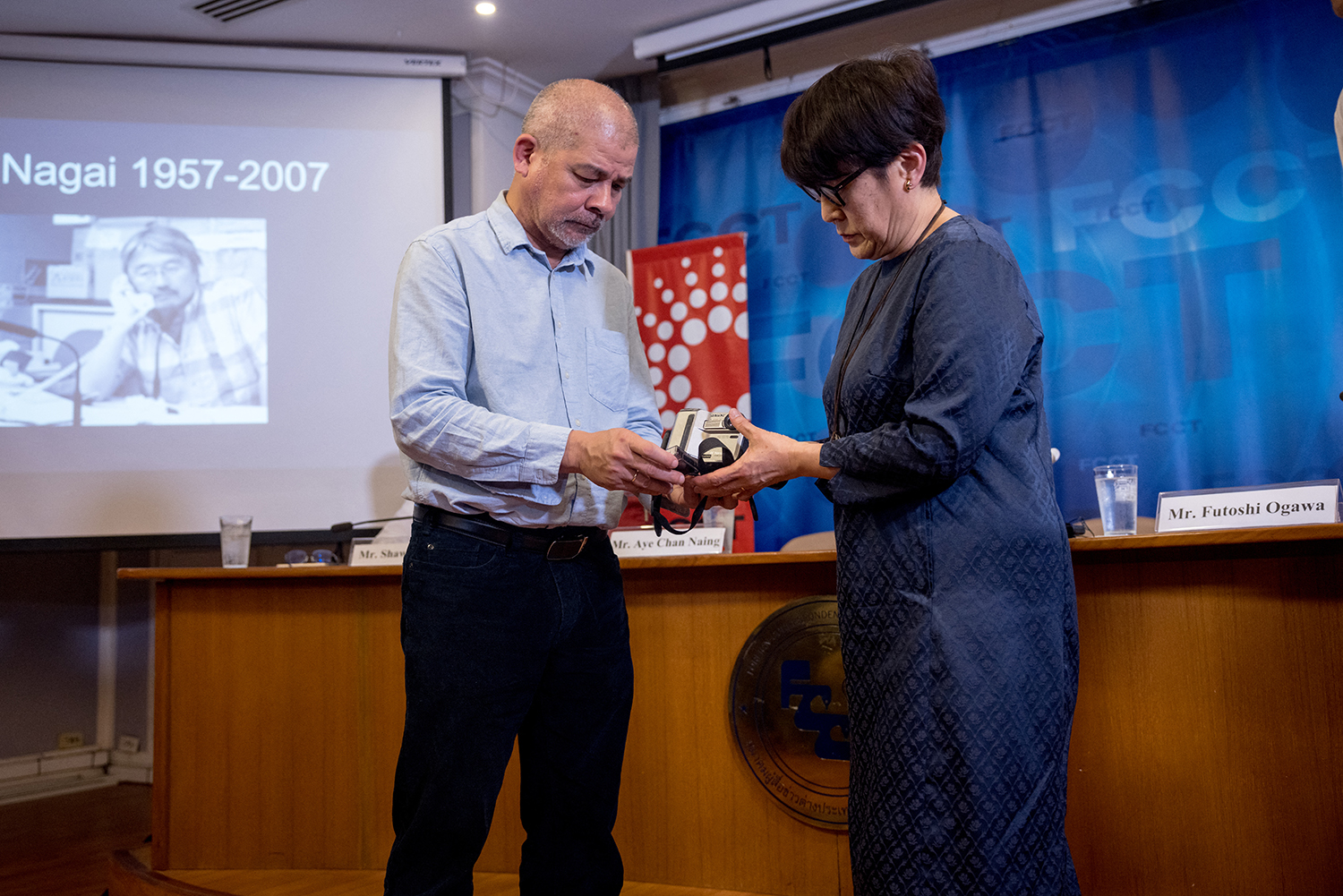By NYAN HLAING LYNN
NAY PYI TAW — More than 60 Pyithu Hluttaw lawmakers have registered to discuss proposed changes to the Peaceful Assembly and Peaceful Procession Law that activists have warned will stifle fundamental political rights.
The Amyotha Hluttaw, or upper house, has already approved the amendments, despite 21 National League for Democracy lawmakers breaking ranks and voting with the military and opposition parties against the changes on March 7.
The bill will now be discussed to the Pyithu Hluttaw, where a showdown is looming between the NLD bloc and other lawmakers in the lower house.
A senior official from the parliamentary office has confirmed to Frontier that more than 60 lawmakers had registered before the March 13 deadline set by the speaker U Win Myint.
Support more independent journalism like this. Sign up to be a Frontier member.
Sources told Frontier that an unusually high number of military MPs have nominated to discuss the bill, although senior lawmakers from the military bloc declined to comment.
They might not all get the chance, however. Under the Pyithu Hluttaw standing orders, not every MP who registers to discuss a bill is guaranteed the right to participate. They will first meet with the Bill Committee to try and resolve their objections to the bill in private.
The Bill Committee hearing will take place a day before the discussion in the hluttaw, a date for which has not yet been set.
U Maung Myint (Union Solidarity and Development Party, Mingin) told Frontier that if the committee accepts lawmakers’ proposed changes to the bill, or the lawmakers agree to drop their proposals, the discussion will not reach the chamber.
“But if neither side gives in, then the issues will be discussed at the hluttaw,” he said.
Maung Myint has reportedly submitted two proposed changes to the amendment bill but declined to discuss them, citing parliamentary rules. Similarly, some members of the Arakan National Party who have nominated for the discussion refused to reveal their position on the bill.
Neither Bill Committee chairman U Tun Tun Hein (NLD, Nawnghkio) nor secretary U Stephen (USDP, Kengtung) could be reached for comment.
The amendments have been widely criticised for their lack of clarity, with around 500 people staging a demonstration in downtown Yangon on March 5 opposing the changes. Civil society leaders have also complained that they were not consulted over the proposed amendment bill, which was first announced in state media on February 20.
Some in the NLD have defended the changes as a necessary response to those seeking to destabilise the government by funding protests. If approved, protest organisers would be required to provide the authorities with “an estimated budget and source of funds” for their demonstration.
However, the amendment bill proposes three further changes, including one that will allow local police to stop a protest if it is deemed to conflict with laws on “national security, rule of law, public order, or public morals”.
It also introduces a new criminal act. Anyone who supports a protest either financially, materially or in other undefined ways faces a three-year prison term and an unlimited fine if the authorities deem that their intention was to “break national security, rule of law, public order, or public morals”.
Under the existing law, police can only bring charges under the law within 15 days of the alleged offence occurring. Another amendment waives this 15-day rule for the new offence.
The Peaceful Assembly and Peaceful Procession Law was enacted in December 2011 and was one of the U Thein Sein government’s early reform steps. However, the original version of the law required demonstrators to seek permission five days in advance and gave the local authorities broad scope to reject applications. Amendments in 2014 and 2016 addressed some of the more problematic sections of the law, and protest organiser now only need to notify the authorities in advance of their demonstration.







